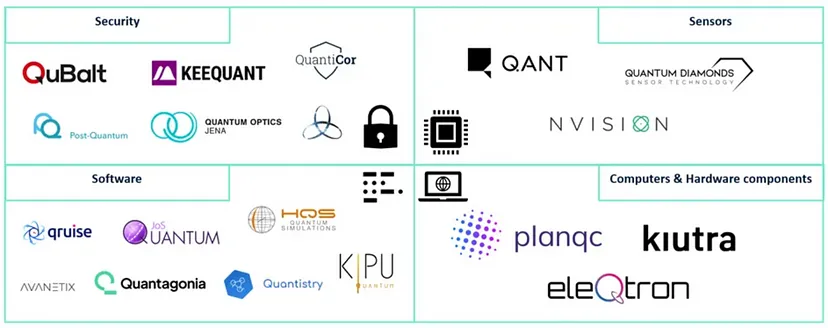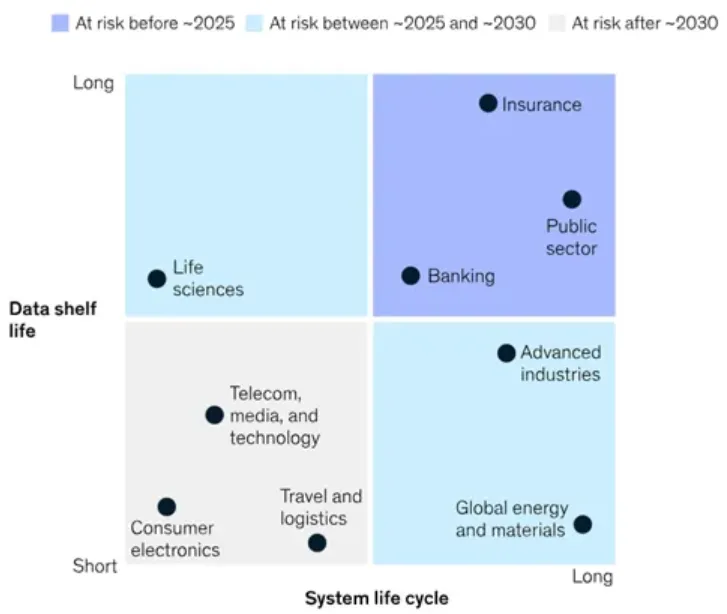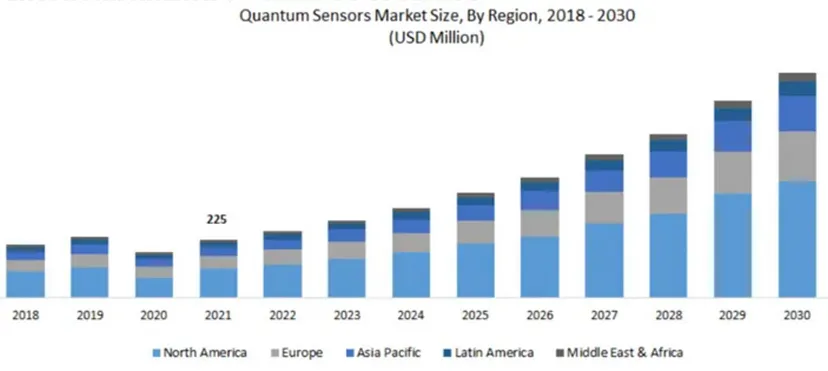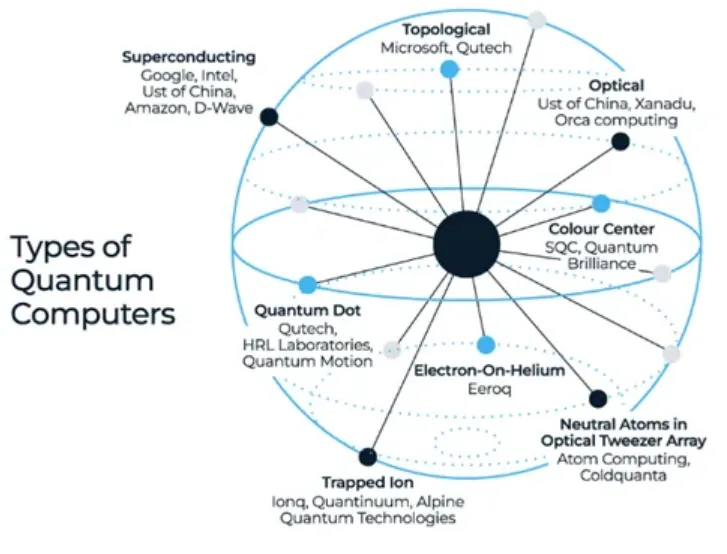Quantum Computing: Navigating the Next Frontier
⚛️ Seeking a Quantum Advantage — A Look Into the Future

Quantum computing is rapidly advancing, promising to reshape industries from cybersecurity to material science. While companies like IBM and Google lead the charge, a growing number of startups are driving innovation in areas like quantum security, sensors, software, and full-stack hardware. In this deep dive, we explore the European quantum landscape and discuss how key players are positioning themselves for success. Read on to discover the breakthroughs that could define the future of computing.
🌐 Quantum Computing: Navigating the Next Frontier
In the ever-evolving field of computational technology, the DeepTech & Climate Fonds (DTCF) aims to be a trailblazer, actively shaping the future of quantum computing. As a growth investor in deep technologies, DTCF is not only a key player in the European quantum ecosystem but also a strategic partner and supporter of industry leaders. With a focus on the German startup ecosystem, the fund positions itself as a vital enabler in the era of quantum advancements.
🌱 Quantum Startups: Diversified and Advanced
Germany’s quantum computing market is not a single, unified sector, but rather a collection of submarkets, each varying in importance, development, and size. As we delve into the structure and dynamics of this sector, one key fact emerges: the German quantum landscape is expanding, with more startups, research centers, industry partners, financiers, and customers entering the field. Below, we provide an overview of the different stages of development, the necessary levers for growth, and the early successes within this promising market.

🔐 Quantum Security: Secure Now, Ease Later
Quantum communication enables the transmission of information with a new standard of security based on the principles of quantum entanglement. This ensures that any unauthorized access to the data is detected. Companies are already using quantum-based networks to transfer sensitive information securely, which is especially crucial for industries like finance and healthcare.
Today’s encryption methods, such as RSA, rely on complex mathematical operations. While these are currently secure, the advent of quantum computers poses a potential threat, as they could eventually crack these encryptions. Already, streams of communication are being recorded and stored for future decryption—a concept known as “store now, decrypt later.”
The following figure shows an illustration from McKinsey’s “Post-quantum cryptography” report (2022), which focuses in particular on the right approach and timing for formulating a quantum cybersecurity strategy. Two components are increasingly important here: The longevity of the data, i.e. the permanence of information that is recorded now at the time of possible decoding, as well as the development cycle of the underlying software or hardware system.

To address these challenges, two technological approaches have been developed:
- Post-Quantum Cryptography (PQC): This approach combines public-key cryptography with mathematical functions that are resistant to quantum computer attacks. PQC allows the use of existing infrastructures while protecting against future quantum threats.
- Quantum Key Distribution (QKD): Based on quantum mechanics, QKD uses laser pulses to create and distribute encryption keys securely. These systems can even be implemented on a single chip, offering practical, scalable solutions.
Together, PQC and QKD offer promising strategies to safeguard digital communications in the quantum era.
🎛️ Quantum Sensors: Detecting the Smallest Deviations
Quantum sensors leverage quantum effects to measure physical properties with extreme precision, allowing for applications in fields like medical imaging, environmental monitoring, and resource exploration. Diamonds, particularly those with nitrogen-vacancy centers (NVZ), are emerging as promising candidates for sensor development. These sensors can detect subtle changes in their environment, such as magnetic fields, thanks to their quantum-mechanical states.
According to a Polaris Market Research, the global market for diamond-based quantum sensors is projected to grow from $608.90 million in 2023 to $1.116 billion by 2028, with a compound annual growth rate (CAGR) of 12.9%. This growth reflects the increasing recognition of these sensors’ value across various industries.

💻 Quantum Software: Creating Scaling Advantages
To fully harness quantum systems’ computational power, specialized software is essential. Companies are developing quantum algorithms to solve problems beyond the reach of classical computers, such as optimization challenges and materials analysis. These quantum models operate on a microscopic level, utilizing the laws of quantum mechanics to describe atomic and molecular behavior.
Such models are invaluable for analyzing the electronic, optical, magnetic, and chemical properties of materials, making them a key tool in advancing quantum computing technology.
🖥️ Full-Stack Hardware: The Core of the Quantum Revolution
The real driver of the quantum revolution lies in full-stack computers, integrating quantum technology from hardware to software. Companies like IBM and Google have developed quantum computers capable of performing complex calculations, though challenges remain in improving qubit stability and scalability. IBM’s roadmap, for instance, outlines their transition from the “Osprey” processor with 433 qubits to “Condor” with 1,121 qubits.
However, the full potential of quantum computing will only be realized when qubits become more resistant to “noise” from environmental factors, enabling them to maintain their quantum state for longer and perform more operations.
Several startups are making notable progress in this area. For example, IQM has raised over €130 million for its IQM Spark project, while Germany’s PlanQC has achieved significant success with its neutral-atom technology, emerging from the Munich Quantum Valley.

Full-stack quantum computers are at the heart of this revolution, with the potential to unlock exciting technological fields. By fostering collaboration, investment, and innovation, we can usher in a new era of computing and scientific progress while ensuring the security of our digital infrastructure. DTCF is ready to actively shape these developments!
📌 Summary of the Article
- Quantum Security: Quantum communication enhances security, but existing encryption methods face threats from future quantum computers.
- Quantum Sensors: Diamond-based sensors detect environmental changes with extreme precision, fueling market growth.
- Quantum Software: Specialized algorithms enable quantum systems to solve complex problems, advancing technology across sectors.
- Full-Stack Hardware: Quantum computers from IBM and Google lead the charge, but startups like IQM and PlanQC are pushing innovation with cutting-edge technology.
_____________________________________
At DTCF, we are deeply engaged in the quantum computing ecosystem, driving forward the next wave of technological breakthroughs. With a fund volume of up to €1 billion, we are committed to supporting capital-intensive quantum innovations. We focus on early growth rounds and look forward to partnering with startups and investors shaping the future of computing.
Are you working on cutting-edge quantum solutions? Have suggestions or know of companies that should be on our radar? We welcome your messages, ideas, and feedback.
👉 This article was written by Lena Stache.